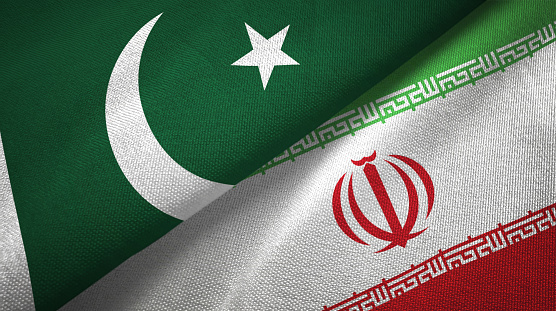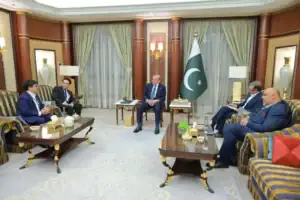Islamabad 1 August: Iranian President Dr Masoud Pezeshkian is set to arrive in Pakistan on Saturday, August 2, for a two-day official visit at the invitation of Prime Minister Shehbaz Sharif.
The visit, confirmed by Mehdi Sanai, the Iranian president’s political adviser, will mark the second presidential visit from Tehran to Islamabad in just over a year. Pezeshkian’s trip, originally scheduled for late July, will include official meetings and interactions with Pakistan’s political leadership as well as cultural and business leaders.
“The relations between the two countries encompass political, economic, religious and cultural dimensions,” Sanai said in a post on X, adding that the visit aims to bolster provincial and border cooperation and expand bilateral trade beyond the current $3 billion mark.
Dr Pezeshkian’s visit comes on the heels of a similar diplomatic outreach by his predecessor, the late President Ebrahim Raisi, who toured Pakistan in April 2024, just weeks before his death in a helicopter crash. Raisi had visited Islamabad, Lahore, and Karachi, where he met top officials and business communities.
Pakistan’s Foreign Office has not yet issued a formal statement, though officials have previously hinted at the visit. Deputy Prime Minister and Foreign Minister Ishaq Dar earlier told Iranian media that the visit would take place in early August. Speaking from New York, Dar underscored Pakistan’s support for diplomacy and regional stability, and expressed hope that Pezeshkian’s visit would further efforts toward dialogue and cooperation.
Dar also reiterated Pakistan’s condemnation of recent attacks on Iranian nuclear facilities, blaming both the Israeli government and the United States. He emphasized that Pakistan could not remain silent and would continue to advocate for peaceful solutions.
The upcoming visit follows PM Shehbaz Sharif’s own trip to Tehran on May 27, where he met with President Pezeshkian to reinforce bilateral ties and express gratitude for Iran’s support during Pakistan’s conflict with India.
Observers expect discussions in Islamabad to focus on trade, border management, energy cooperation, and regional security, particularly in light of recent geopolitical tensions in the Middle East.









